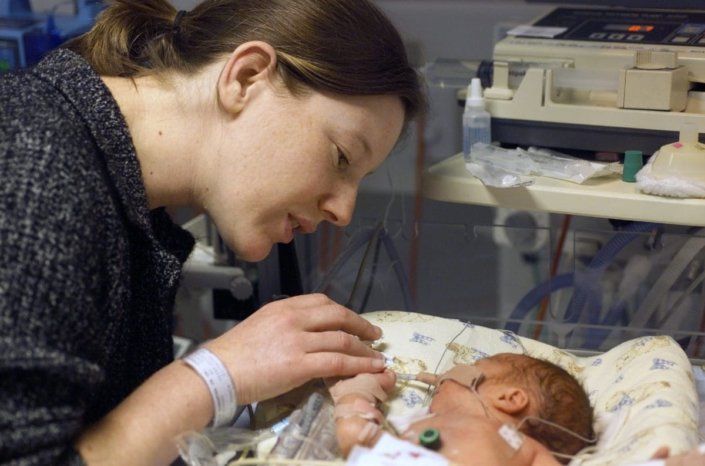Premature Birth
Premature Birth
Every woman desires of a perfect pregnancy. A 40-7 days time where everything will go as planned. But 1 from every 10 infants in the usa is born prematurely. So when a baby has already established less time to create in the womb, they’re often born with troubles. That’s because several organs, including the human brain, lungs, and liver, remain developing in the ultimate weeks of pregnancy. Difficulties range between mild to serious. They can consist of breathing and feeding complications, cerebral palsy, developmental delays, and vision and listening to problems.
The sooner the delivery, the much more likely it will be that the infant will have more serious issues. Preterm means babies born alive prior to the completion of 37 several weeks of pregnancy. Premature birth sub-categories derive from gestational age (what lengths along the pregnancy will be). It’s measured in days, from the initial day of the girl’s final menstrual cycle to the present time:
- Extremely preterm (born before 28 several weeks).
- Very preterm (28 to before 32 days).
- Moderate to past due preterm (32 to before 37 several weeks).
Preterm birth is the foremost contributor to infant loss of life. The majority of the deaths take place among children born ahead of 32 days of pregnancy.
Doctors don’t constantly know why a female gives birth before 37 weeks. But several aspects can put females at a higher danger. They include:
- Being younger than 19 or over the age of 40.
- Getting a low maternal revenue or socioeconomic position.
- Having contamination or chronic problem, such as for example diabetes.
- Getting a prior preterm birth.
- Carrying a child with twins, triplets, or even more.
- Having raised blood pressure during pregnancy.
- Tobacco use or alcoholic beverages during pregnancy.
- Abusing medicines during pregnancy.
- Beginning prenatal care past due in the pregnancy.
- Going right through a stressful occasion during pregnancy.
Way to improved wellness
Can premature birth be avoided?
Some risk elements can’t be changed. Nevertheless, you may take certain steps to lessen your risk of getting a premature infant:
- Don’t smoke. Should you choose, quit now. Talk to your physician about how to accomplish it.
- Don’t make use of alcohol or medications during pregnancy.
- Head to your physician for prenatal care once you believe you’re pregnant. Keep all of your appointments during your pregnancy.
- Be taken care of for any chronic circumstances you have.
- Lessen your stress.
Know the indications. If you think you might be in labor, contact your doctor immediately. Signs of labor consist of:
Premature babies (preemies) need exclusive treatment. A neonatal intensive treatment unit (NICU) is really a nursery in a healthcare facility that focuses on the treatment of preemies. The physicians and nurses who function in the NICU possess specialized teaching and equipment to look after these infants. This guarantees your child will get the perfect care for his / her proper development and development.
You’ll be capable of geting involved in your child’s care, even though they’re in the NICU. Premature infants cannot feed from the breasts or bottle until they’re 32 to 34 several weeks gestational age group. But breast milk could be pumped by mom and fed to the newborn through a tube. Breasts milk includes a distinct benefit over formula. It includes antibodies to greatly help protect your child from infections their underdeveloped disease fighting capability can’t fight off.
Because premature babies want more diet than full-term infants, minerals and vitamins may be put into breast milk or formulation.
Aware of your premature child
As soon as your child’s techniques are developed and will work on their very own, he or she can go home. The infant may still require particular care, especially if she or he was really small at birth.
In a few days to be released from a healthcare facility, you’ll have to take your child to the doctor. She or he will check your child’s pounds and make certain everything is certainly going well in the home. At each of your child’s properly visits, your physician will check your child’s development using a special development chart for premature children. Growth for the baby could be slower when compared to a full-term infant’s development. Don’t worry, though. Many premature babies meet up with full-term infants after the first 24 months.
Talk with your physician about feeding your child. Breast milk is definitely best. But premature children can have problems with sucking or latching on. Ask your physician for assist, or for a suggestion of a lactation consultant if essential.
Points to consider
Certain eyesight and hearing issues tend to be more typical in premature infants. Crossed eye (or strabismus), for instance, will often disappear completely alone. Retinopathy of prematurity (ROP), a disorder where the small arteries in the attention grow abnormally, may appear in babies who have been born at or before 32 days of pregnancy. Request your doctor should you take your child to an eye physician.
Premature children are also more prone to have hearing problems. Get hold of your doctor if your child fails to respond to loud sounds.
Your physician will also pay attention to your child’s developmental milestones. Motor abilities like smiling, seated, and walking will undoubtedly be carefully monitored as he grows.
